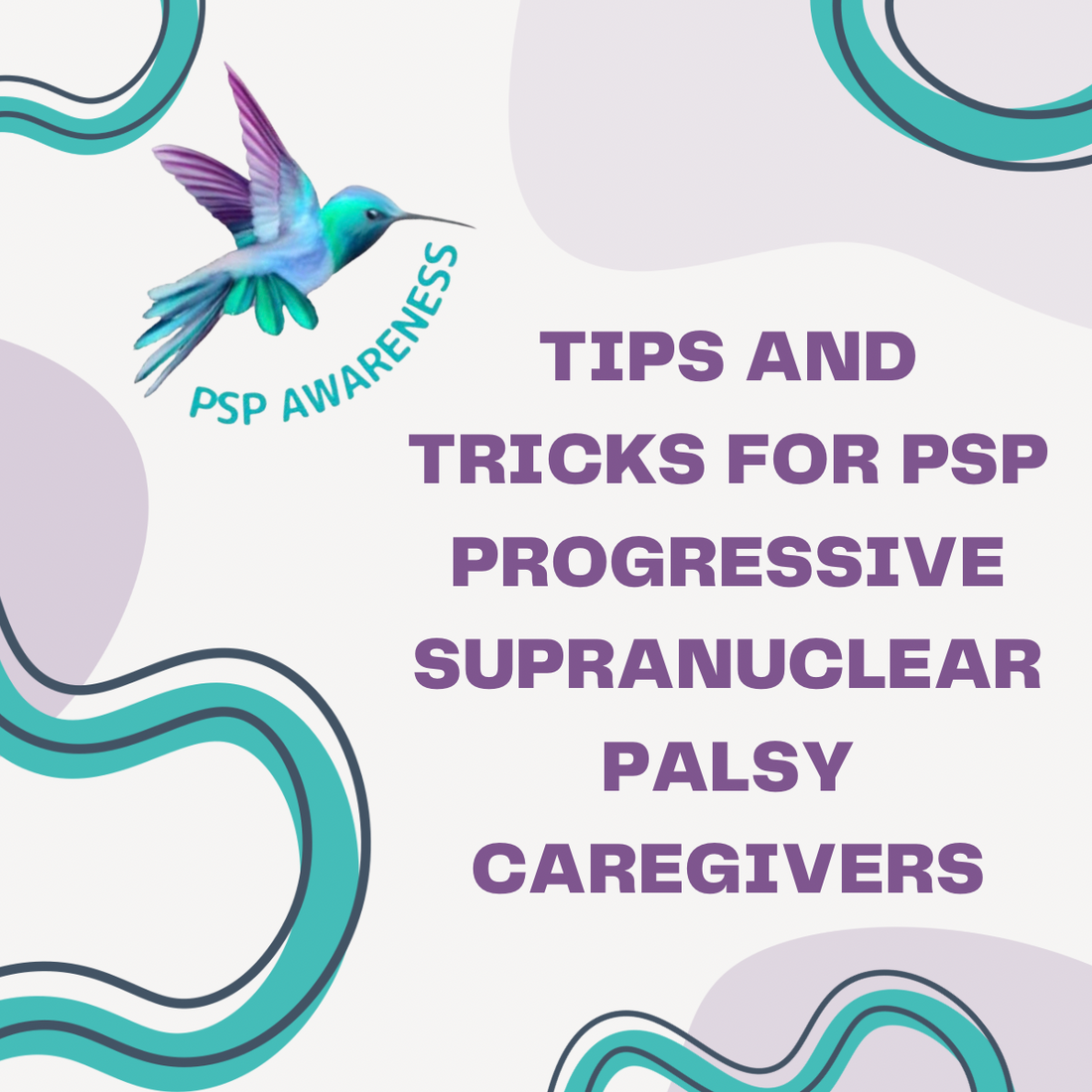
Tips and Tricks for PSP (Progressive Supranuclear Palsy) Caregivers
2. **Adapt the Environment**: Safety is a priority. Make the living space fall-proof by removing obstacles, using non-slip mats, and installing grab bars in necessary areas.
3. **Eye Care**: Because PSP affects eye movements, ensure regular eye check-ups and address any vision concerns promptly. Using special eyewear or magnifying glasses can also be beneficial.
4. **Swallowing and Nutrition**: As swallowing can be challenging, consider thickening agents for liquids and consult with a speech therapist for guidance. Ensure a balanced diet to prevent malnutrition.
5. **Speech Difficulties**: If your loved one has trouble speaking, consider using communication boards, apps, or devices to aid in expressing themselves.
6. **Physical Therapy**: Engage in regular physical therapy to maintain as much mobility and strength as possible. This can help with balance, walking, and general well-being.
7. **Stay Organized**: Keep a diary or calendar for medical appointments, medication schedules, and any observed symptoms or changes.
8. **Emotional Support**: Join a support group or online forum where you can share experiences and get advice from others in similar situations.
9. **Respite Care**: Remember to take breaks. Caregiving can be demanding. It's essential to rest and recharge. Consider short-term respite care options when needed.
10. **Legal and Financial Matters**: Ensure that all legal paperwork, like wills and power of attorney documents, are up to date. Seek advice on financial planning if needed.
11. **Stay Active and Social**: Engage your loved one in activities they enjoy, and keep them socially connected, as this can greatly enhance their quality of life.
12. **Seek Medical Advice Regularly**: PSP is a complex condition, and its progression can vary. Regular check-ups will help adapt care plans accordingly.
13. **Use Adaptive Equipment**: Tools like walkers, wheelchairs, or special cutlery can make daily tasks easier and safer.
14. **Stay Patient and Positive**: Understand that there will be good days and challenging days. Celebrate the small victories and remain patient during the difficult times.
15. **Self-care**: As a caregiver, don't forget about your own well-being. Seek counseling or therapy if you're feeling overwhelmed or depressed.
Remember, PSP caregiving can be demanding, but your efforts make a significant difference in your loved one's life. Seek support when needed, and take care of yourself as well.

 Donate
Donate




4 comments
Hi Anjali,
I’m sorry to hear about your dad’s diagnosis and the challenges you’re both facing. For support in India, I recommend contacting Nita, who is part of a support group dedicated to PSP. She can provide valuable resources, advice, and a community for both you and your dad.
You can reach Nita at nitivaidya@gmail.com. She’ll be able to guide you through the next steps and connect you with others who understand what you’re going through.
Stay strong, and remember you’re not alone in this journey.
Hugs, Laura xx
Hi,
I am from India and my dad is diagnosed with PSP almost 2 years ago. He is on meds and regular checkup but he has anxiety and suicidal symptoms. I also get anxious seeing him like this. There is no support group or awareness in India. Really confusing on what next steps to take to make him feel better
Carla
I’m sorry to hear about your mother’s situation, Carla. It must be very challenging for you and your family. It’s important to note that I’m not a doctor, but there are various medications used to manage the symptoms of different neurological or geriatric conditions. The most suitable medication depends on her specific diagnosis, the severity of her symptoms, her overall health, and any potential drug interactions.
If your mother is experiencing side effects or if her current medication regimen isn’t effective, it’s essential to discuss this with her healthcare team, especially her hospice physician and nurses. They will have the best understanding of her specific situation and can recommend adjustments or alternative treatments.
That said, some medications commonly used for various neurological and geriatric conditions include:
1. Antipsychotics: These can help with behavioral symptoms in some patients but can also have side effects.
2. Antidepressants: Can help manage mood disturbances.
3. Mood stabilizers: Can be used in some patients.
4. Benzodiazepines: Sometimes used for anxiety or agitation, but they can also cause drowsiness and have a risk of dependence.
5. Medications for Parkinson’s: Like levodopa, can help manage motor symptoms in some conditions.
6. Cholinesterase inhibitors: Such as donepezil, which are used in Alzheimer’s disease.
It’s essential to find a balance that allows your mother to communicate and be as comfortable as possible while also managing any behavioral or movement challenges. You might also consider consulting with a geriatric psychiatrist or neurologist, as they often have specific expertise in managing medications for older adults with neurological conditions.
Remember to always prioritize your mother’s safety and well-being, and keep communication open with the healthcare team.
My mother was diagnosed Aug. 2021. Her symptoms are currently bad. Can’t speak, barely can walk or see. She eats very well we feed her. The meds keep her somewhat still, without meds she tends to be able to speak to where we can understand her, but off meds, she tries to get out of chair or want be still at all. What type of meds. Are some of the people using. My mother is very ridged she can move them it takes her a while when on meds. She is on Hospice and it is a very hard and sad life for her. I would like her off the meds so she can communicate at least. But she is uncontrollable. I know there has to be some other drugs that will calm her down with making her so groggy. Any suggestions, thank you. Carla